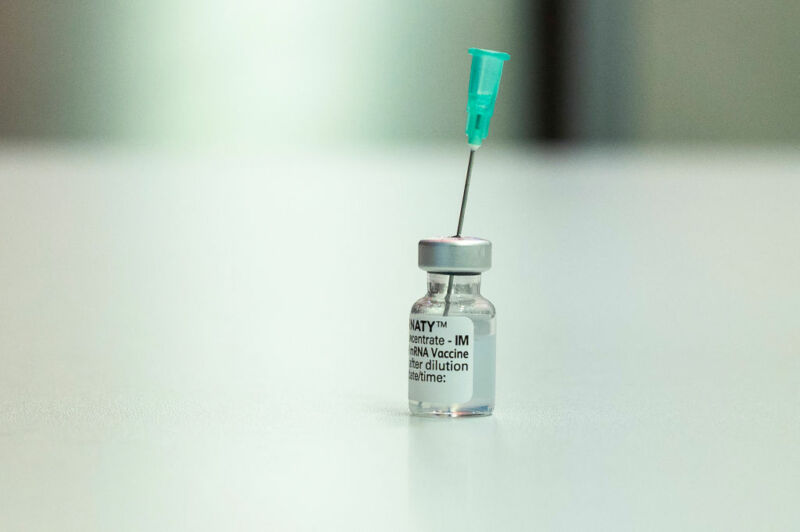IMF says $50 billion is needed to end Covid pandemic in 2022
The world could “end the pandemic” in mid-2022 by vaccinating 60 percent of the population at a cost of $50 billion, the IMF has said, as rich countries and vaccine manufacturers pledged to address the inequality undermining the global response to coronavirus.
Countries with sufficient vaccine supplies could afford to donate 1 billion doses in 2021, even while continuing to prioritise the immunisation of their own populations against Covid-19, the IMF said in its report released at a virtual G20 Health Summit on Friday.
Combined with upfront financing, the vaccine donations would bring a faster end to the pandemic, saving millions of lives and yielding economic benefits of about $9tn to global gross domestic product by 2025, it estimated.
“In the absence of urgent actions, many emerging and developing economies may have to wait until the end of 2022 or later to bring the pandemic under control,” the IMF warned. “That will be too late not just for those countries but also for the world.”
The $50 billion figure is tiny compared with the $16tn that the IMF estimates countries have already spent supporting households and businesses during the pandemic. But some health experts say the biggest impediments to vaccination drives are not funding but logistics and national politics.
The IMF proposal was released as Ursula von der Leyen, European Commission president, told the virtual meeting that the EU would donate at least 100m vaccines to poorer countries by the end of the year, including 30m doses each from Germany and France.
While some countries have begun to celebrate falling infection rates, successful vaccination campaigns and a return to some semblance of normality, global cases of Covid infections are at present at some of the highest levels since the start of the pandemic.
“As we prepare for the next pandemic, our priority must be to ensure that we all overcome the current one together. We must vaccinate the world, and do it fast,” said Italian prime minister Mario Draghi, who hosted the virtual meeting.
Pfizer and BioNTech also pledged to supply 1 billion cut-price doses to poorer nations in 2021 and a further 1 billion in 2022. The companies’ breakthrough Covid-19 shot has become the mainstay of vaccination campaigns in Europe and the US.
To date, about 1.6 billion vaccinations have been administered worldwide out of a global population of almost 8 billion, according to Financial Times data. But vaccination campaigns continue to be interrupted by practical and political difficulties.
Although the UK has vaccinated 60 percent of its adults with at least one dose of a Covid vaccine, most African countries have immunized less than 1 percent of their population. The IMF said the world should aim to have vaccinated 40 percent of all countries’ populations by the end of 2021 and at least 60 percent by the middle of 2022.
“The proposal requires not just commitments but upfront financing, upfront vaccine donations and upfront ‘at-risk’ precautionary investments,” Kristalina Georgieva, IMF managing director told the virtual summit. “It is essential that all necessary financing is available immediately.”
Manufacturing has been constrained this year by shortages of key materials and supply disrupted by export controls in leading producers such as India. The possibility that the mutating virus will undermine the efficacy of existing shots has also raised concerns that the pandemic could drag on, even if the manufacturing and supply problems are overcome.
To prevent the spread of new and more virulent variants of Sars-CoV-2, the IMF also outlined the need to invest in widespread deployment of test-and-trace initiatives as a precautionary measures.
The proposed measures could be funded with $35 billion in grants from donor countries and $15 billion in financing from national governments, the IMF said. The $35 billion in donations would include a $4 billion increase in upfront funding to the international Covax initiative to increase vaccination coverage in low- and middle-income countries from the current target of 20 percent to 30 percent by the end of this year.
The report suggested vaccine production capacity had already become less of a constraint on vaccination than previously feared. The IMF “conservatively” expected “at least 6 billion vaccine doses [to be] produced and administered worldwide by the end of 2021,” it said.
Thomas Bollyky, a senior fellow at the US Council on Foreign Relations, said the IMF proposal was “useful for prodding people to think about what’s needed” but warned that money was “no substitute for political leadership.”
“The challenge hasn’t been financing, it’s been an unwillingness of leaders around the world to engage in those actions prior to addressing domestic vaccine needs,” he said. “It’s going to take more than money to get us out of this.”
Source: IMF says $50 billion is needed to end Covid pandemic in 2022
- aum
-

 1
1



Recommended Comments
There are no comments to display.
Join the conversation
You can post now and register later. If you have an account, sign in now to post with your account.
Note: Your post will require moderator approval before it will be visible.